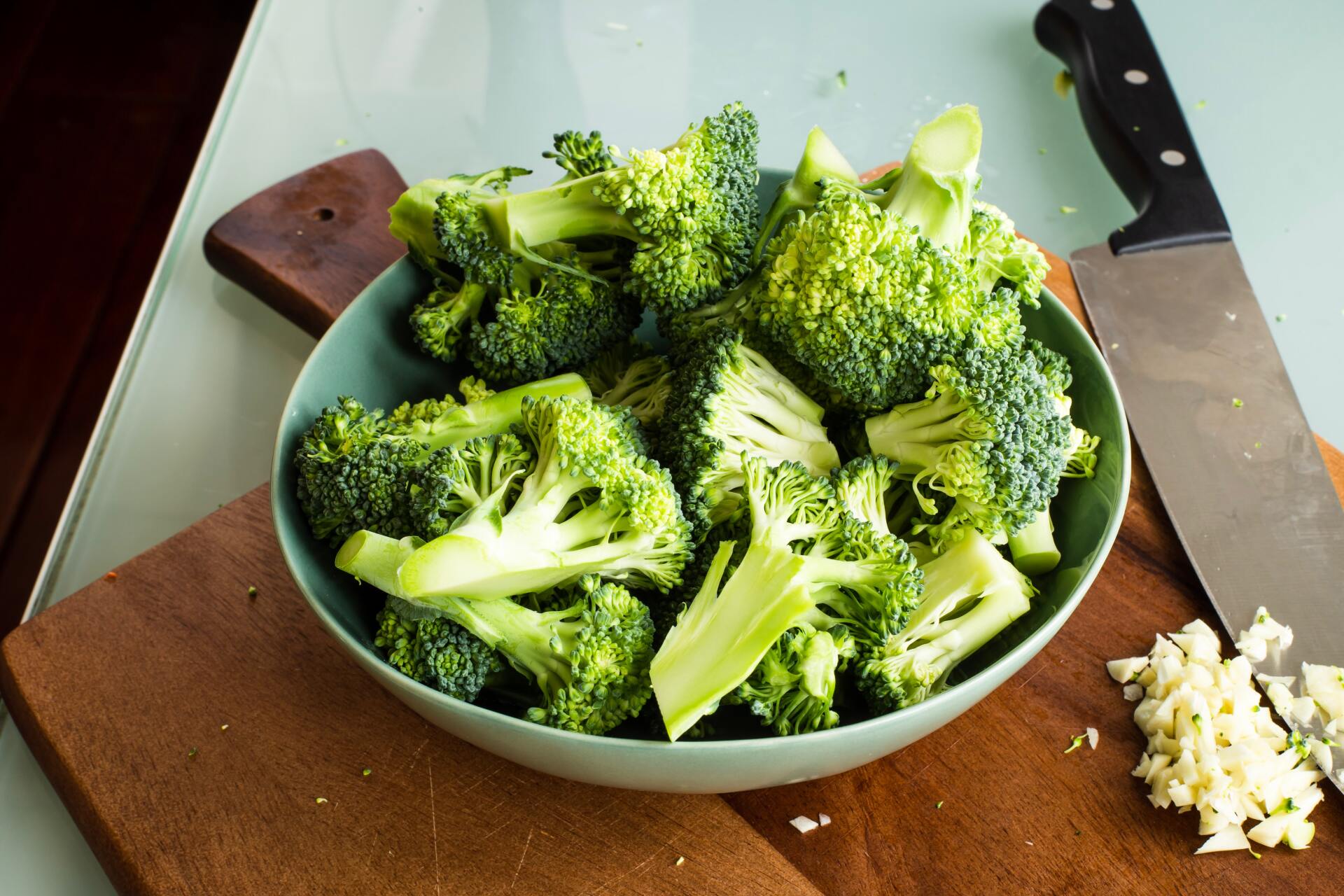READ UP ON THE LATEST HORMONE AND THYROID NEWS!

Foods to avoid with an underactive thyroid
What you eat massively influences your health, especially if you have thyroid issues. Your diet can actually trigger a sluggish thyroid or make your symptoms worse.
Even if you don’t have diagnosed hypothyroidism, certain foods can still slow your thyroid down.
So, I’ve put together a list of some of the main foods I recommend avoiding to support your thyroid health.
I know this might seem overwhelming, but stick it out until the end of the blog post when I give you some recommendations on how to start eliminating these
So, here are some foods you should avoid if you have an underactive thyroid.
Gluten
This is the first thing I recommend eliminating even if you only suspect you have a thyroid issue because it is so hard on the thyroid. Because gluten is so hard on the thyroid, just eliminating this one ingredient from your diet can bring so much benefit. And I know this may seem really challenging, but there are SO many good gluten-free options out there, I promise that you will be able to find some swaps that you’ll love.
Soy
This is the other ingredient that I recommend cutting from your diet as soon as possible, as soy can worsen hypothyroidism. This includes soy beans, soy sauce, and tofu. If you really, really love the flavor of soy sauce, try swapping it for coconut aminos (find it at Whole Foods or your local health food store). Beyond avoiding the clearly soy-based products, unfortunately, soy is a common additive in packaged and processed foods, so when you are buying packaged foods, be sure to read the ingredients list closely.
Dairy
Some people with thyroid issues do okay with dairy (not me!). This might be one food group to slowly eliminate to see if it helps you feel better, and then slowly re-introduce if it didn’t make a difference (and if you want to continue eating/drinking it). If you do decide to keep dairy in your diet, make sure it’s organic!

Uncooked cruciferous vegetables
Vegetables in the cruciferous family include broccoli, kale, Brussels sprouts, cauliflower, etc. and are hard on the body when they’re raw. But they are also some of the most nutrient-dense foods on the planet, so as a nutritionist, I would be doing you a disservice to tell you to avoid them completely! Instead, just cook them by roasting, steaming, pan-frying, or grilling. Roasted Brussels sprouts are a staple in my household and so delicious when cooked right.
Processed foods
The standard rule of thumb is that if you can’t pronounce the ingredient, it’s probably not something you want to eat. Yes, packaged foods are convenient, but when you’re trying to heal the thyroid, you really need to focus on the quality of the food. And I’m not saying to eliminate all packaged foods. But instead, just make sure you understand the ingredient list and make sure it is made up of things you’re okay with and happy to eat.
Sugar
The problem with sugar is that it causes inflammation in the body, which does not play well with a slow thyroid, so sugar - especially refined white sugar, but also things like honey and maple syrup - should be avoided, at least until you have a grasp on your thyroid health. Even then, refined sugar should be avoided as much as possible. If you’re looking for a sweetener for your coffee or baking, Stevia is my main recommendation and what I use at home.
Alcohol
Alcohol is processed through the liver, which is also where your thyroid hormones are converted. If the liver is focused on your alcohol intake, then it won’t be able to support your thyroid very well. If you do want to have a little bit of alcohol - like, a glass - then drink lots of water and consider taking a liver supplement.
Refined industrial oils
That includes canola, soy, peanut, and corn oils. Similar to sugar, these types of oils can cause inflammation which also slows down the thyroid, so they should be avoided as much as possible. This means limiting your intake of fast food (especially fried foods) but also controlling what oil you use in your own cooking. If you have a choice, opt for Extra Virgin Olive Oil, avocado oil, or coconut oil.
It’s not easy to eliminate things you’re used to having regularly or things you love
Here’s my advice: find what works best for you. Are you the type of person that prefers to make big changes all at once? Then eliminate these foods altogether.
But if you prefer doing it in baby steps, that’s great too. You might consider cutting one group out this month (start with gluten or soy!), then eliminate another each month until you reach that optimal thyroid-friendly clean-eating habit.
Eating clean is one step that you can take to regain control of your health and get your thyroid back on track. It’s not always easy, but it’s worth it - I can say this from experience!
If you want more tips and resources for thyroid-friendly eating, sign up for my Sexy Thyroid Solution newsletter.

Foods to avoid with an underactive thyroid
What you eat massively influences your health, especially if you have thyroid issues. Your diet can actually trigger a sluggish thyroid or make your symptoms worse.
Even if you don’t have diagnosed hypothyroidism, certain foods can still slow your thyroid down.
So, I’ve put together a list of some of the main foods I recommend avoiding to support your thyroid health.
I know this might seem overwhelming, but stick it out until the end of the blog post when I give you some recommendations on how to start eliminating these
So, here are some foods you should avoid if you have an underactive thyroid.
Gluten
This is the first thing I recommend eliminating even if you only suspect you have a thyroid issue because it is so hard on the thyroid. Because gluten is so hard on the thyroid, just eliminating this one ingredient from your diet can bring so much benefit. And I know this may seem really challenging, but there are SO many good gluten-free options out there, I promise that you will be able to find some swaps that you’ll love.
Soy
This is the other ingredient that I recommend cutting from your diet as soon as possible, as soy can worsen hypothyroidism. This includes soy beans, soy sauce, and tofu. If you really, really love the flavor of soy sauce, try swapping it for coconut aminos (find it at Whole Foods or your local health food store). Beyond avoiding the clearly soy-based products, unfortunately, soy is a common additive in packaged and processed foods, so when you are buying packaged foods, be sure to read the ingredients list closely.
Dairy
Some people with thyroid issues do okay with dairy (not me!). This might be one food group to slowly eliminate to see if it helps you feel better, and then slowly re-introduce if it didn’t make a difference (and if you want to continue eating/drinking it). If you do decide to keep dairy in your diet, make sure it’s organic!

Uncooked cruciferous vegetables
Vegetables in the cruciferous family include broccoli, kale, Brussels sprouts, cauliflower, etc. and are hard on the body when they’re raw. But they are also some of the most nutrient-dense foods on the planet, so as a nutritionist, I would be doing you a disservice to tell you to avoid them completely! Instead, just cook them by roasting, steaming, pan-frying, or grilling. Roasted Brussels sprouts are a staple in my household and so delicious when cooked right.
Processed foods
The standard rule of thumb is that if you can’t pronounce the ingredient, it’s probably not something you want to eat. Yes, packaged foods are convenient, but when you’re trying to heal the thyroid, you really need to focus on the quality of the food. And I’m not saying to eliminate all packaged foods. But instead, just make sure you understand the ingredient list and make sure it is made up of things you’re okay with and happy to eat.
Sugar
The problem with sugar is that it causes inflammation in the body, which does not play well with a slow thyroid, so sugar - especially refined white sugar, but also things like honey and maple syrup - should be avoided, at least until you have a grasp on your thyroid health. Even then, refined sugar should be avoided as much as possible. If you’re looking for a sweetener for your coffee or baking, Stevia is my main recommendation and what I use at home.
Alcohol
Alcohol is processed through the liver, which is also where your thyroid hormones are converted. If the liver is focused on your alcohol intake, then it won’t be able to support your thyroid very well. If you do want to have a little bit of alcohol - like, a glass - then drink lots of water and consider taking a liver supplement.
Refined industrial oils
That includes canola, soy, peanut, and corn oils. Similar to sugar, these types of oils can cause inflammation which also slows down the thyroid, so they should be avoided as much as possible. This means limiting your intake of fast food (especially fried foods) but also controlling what oil you use in your own cooking. If you have a choice, opt for Extra Virgin Olive Oil, avocado oil, or coconut oil.
It’s not easy to eliminate things you’re used to having regularly or things you love
Here’s my advice: find what works best for you. Are you the type of person that prefers to make big changes all at once? Then eliminate these foods altogether.
But if you prefer doing it in baby steps, that’s great too. You might consider cutting one group out this month (start with gluten or soy!), then eliminate another each month until you reach that optimal thyroid-friendly clean-eating habit.
Eating clean is one step that you can take to regain control of your health and get your thyroid back on track. It’s not always easy, but it’s worth it - I can say this from experience!
If you want more tips and resources for thyroid-friendly eating, sign up for my Sexy Thyroid Solution newsletter.

CALL US TODAY! (314) 226-3137
Content, including images, displayed on this website is protected by copyright laws. Downloading, republication, retransmission or reproduction of content on this website.

